Bulk discounts available. For details visit:
2022 Richard P. Finnegan
All rights reserved. No portion of this book may be reproduced, stored in a retrieval system, or transmitted in any form or by any meanselectronic, mechanical, photocopy, recording, scanning, or otherexcept for brief quotations in critical reviews or articles, without the prior written permission of the publisher.
Published by HarperCollins Leadership, an imprint of HarperCollins Focus LLC .
Any internet addresses, phone numbers, or company or product information printed in this book are offered as a resource and are not intended in any way to be or to imply an endorsement by HarperCollins Leadership, nor does HarperCollins Leadership vouch for the existence, content, or services of these sites, phone numbers, companies, or products beyond the life of this book.
Finnegan, Richard P.
The stay interview : a managers guide to keeping the best and brightest / Richard
P. Finnegan.
Includes index.
1. Employee attitude surveys. 2. Employee retention. I. Title.
Please note that footnotes in this ebook may contain hyperlinks to external websites as part of bibliographic citations. These hyperlinks have not been activated by the publisher, who cannot verify the accuracy of these links beyond the date of publication.
CHAPTER
The Stay
Interview
T he concept of stay interviews seems way too simple. Is it really possible to improve your teams engagement, retention, and productivity just by asking employees what you can do to make their jobs better?
The answer is yes because stay interviews address the two great crises facing business today simply, cheaply, and where the crises originate.
According to the Bureau of Labor Statistics, the number of employees who voluntarily quit is increasing sharply each year,
To combat these disastrous trends we will soon be spending, according to a third study, $1.5 billion each year on top of the other billions we have already spent. These dollars are poured into well-intentioned initiatives such as Career Day, Employee Appreciation Week, town hall meetings, better newslettersall the scattershot, impersonal things that corporate imagines will make companies better.
However, when was the last time you heard a really good worker say, My boss treats me like dirt, but Im holding on for Employee Appreciation Week. Ill get a balloon and a hot dog and Ill be stoked for another year?
The trouble with these programs is that they are implemented above and around each employees direct supervisor, and the data has long been clear and conclusive: The primary reason employees work harder and stay longer is a good relationship with their direct supervisors.
As one-on-one meetings between leaders and both newly hired and continuing employees, stay interviews reinforce good relationships, forge new ones, and help repair those that are strained. On that small foundation great companies are built.
What Are Stay Interviews?
To know what stay interviews are, it is important to note what they are not.
 They are not team meetings or focus groups. They are private, individual meetings with each employee.
They are not team meetings or focus groups. They are private, individual meetings with each employee.
 They are not conducted by HR because supervisors are too busy. They are conducted by direct supervisors, who must own their talent.
They are not conducted by HR because supervisors are too busy. They are conducted by direct supervisors, who must own their talent.
 They are not intended to craft development plans. They arent based on the assumption that all employees want to grow. And they dont prioritize professional growth over schedules, colleagues, input, and other aspects of work. They reveal what is important to the employees and how their desires can be satisfied.
They are not intended to craft development plans. They arent based on the assumption that all employees want to grow. And they dont prioritize professional growth over schedules, colleagues, input, and other aspects of work. They reveal what is important to the employees and how their desires can be satisfied.
 They are not focused on job performance. They are aimed instead at making employees work lives more rewarding and comfortable.
They are not focused on job performance. They are aimed instead at making employees work lives more rewarding and comfortable.
 They are not something faddish to be done occasionally. They are a management priority conducted on a specific schedule with required follow-ups.
They are not something faddish to be done occasionally. They are a management priority conducted on a specific schedule with required follow-ups.
Consider the processes your company employs to help you manage your team. Do these processes actually improve engagement, retention, and productivity or do they simply clutter your relationships? Do they provide the most direct way to identify and solve productivity obstacles? Do they consider your employees points of view? Think about:
 Performance reviews, during which employees wonder if theyre being treated fairly and managers dread giving uncomfortable feedback
Performance reviews, during which employees wonder if theyre being treated fairly and managers dread giving uncomfortable feedback
 Engagement surveys, from which we get scores for our teams, assume they all think the same way, then guess at the correct solutions
Engagement surveys, from which we get scores for our teams, assume they all think the same way, then guess at the correct solutions
 Exit surveys, from which we learn how we could have kept an employee, based on the assumption that the employee has told the truth
Exit surveys, from which we learn how we could have kept an employee, based on the assumption that the employee has told the truth
 Management training classes, the so-called soft skills training, where techniques seem easy to apply until we slide back into the reality of our jobs and working with real people
Management training classes, the so-called soft skills training, where techniques seem easy to apply until we slide back into the reality of our jobs and working with real people
 Rounding, or management-by-walking-about, which is based on the idea that superficial, Hows it going? chitchat will inspire the troops
Rounding, or management-by-walking-about, which is based on the idea that superficial, Hows it going? chitchat will inspire the troops
These processes might get you some insights into the source of problems you can act on before its too late, but thats not what theyre designed to do. Stay interviews, on the other hand, will enable you to get at problems immediately, surgically, and comprehensively.
Whats in It for You?
It is easy to argue that by implementing stay interviews your organization will perform better, your executives will shine, and your board will be pleased. The best reason for implementing them, though, is for your own happiness both now and for the rest of your career. Lets be selfish for a minute and think about the benefits of stay interviews to you as a manager:
 You are accountable for producing work that is measured in numbers that you must achieve.
You are accountable for producing work that is measured in numbers that you must achieve.
 Your main method to achieve these numbers is to get more productive work from your team.
Your main method to achieve these numbers is to get more productive work from your team.
 Your achieving these numbers consistently, year after year, puts you in position to retain your job and get promoted to a higher job.
Your achieving these numbers consistently, year after year, puts you in position to retain your job and get promoted to a higher job.

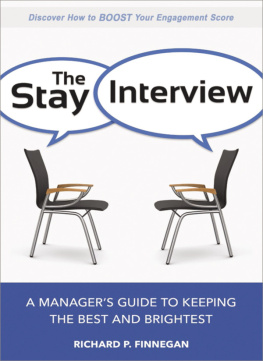
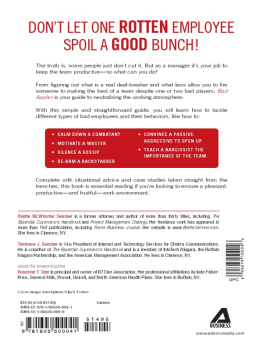
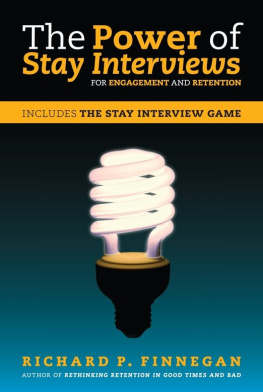


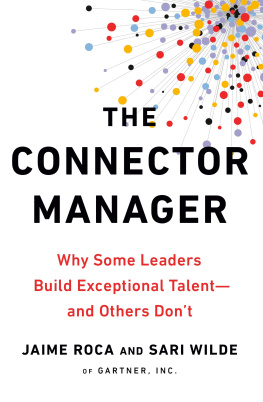
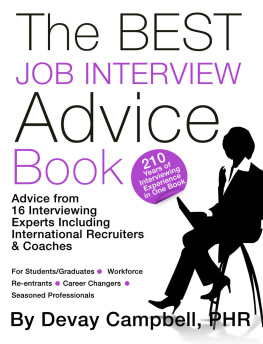


 They are not team meetings or focus groups. They are private, individual meetings with each employee.
They are not team meetings or focus groups. They are private, individual meetings with each employee.